Associate Professor, Dr. Nguyen Thi Lien Huong, Deputy Minister of Health, and the ministry's working delegation visited and worked with the Faculty of Medicine (Ho Chi Minh City National University) yesterday (June 24).
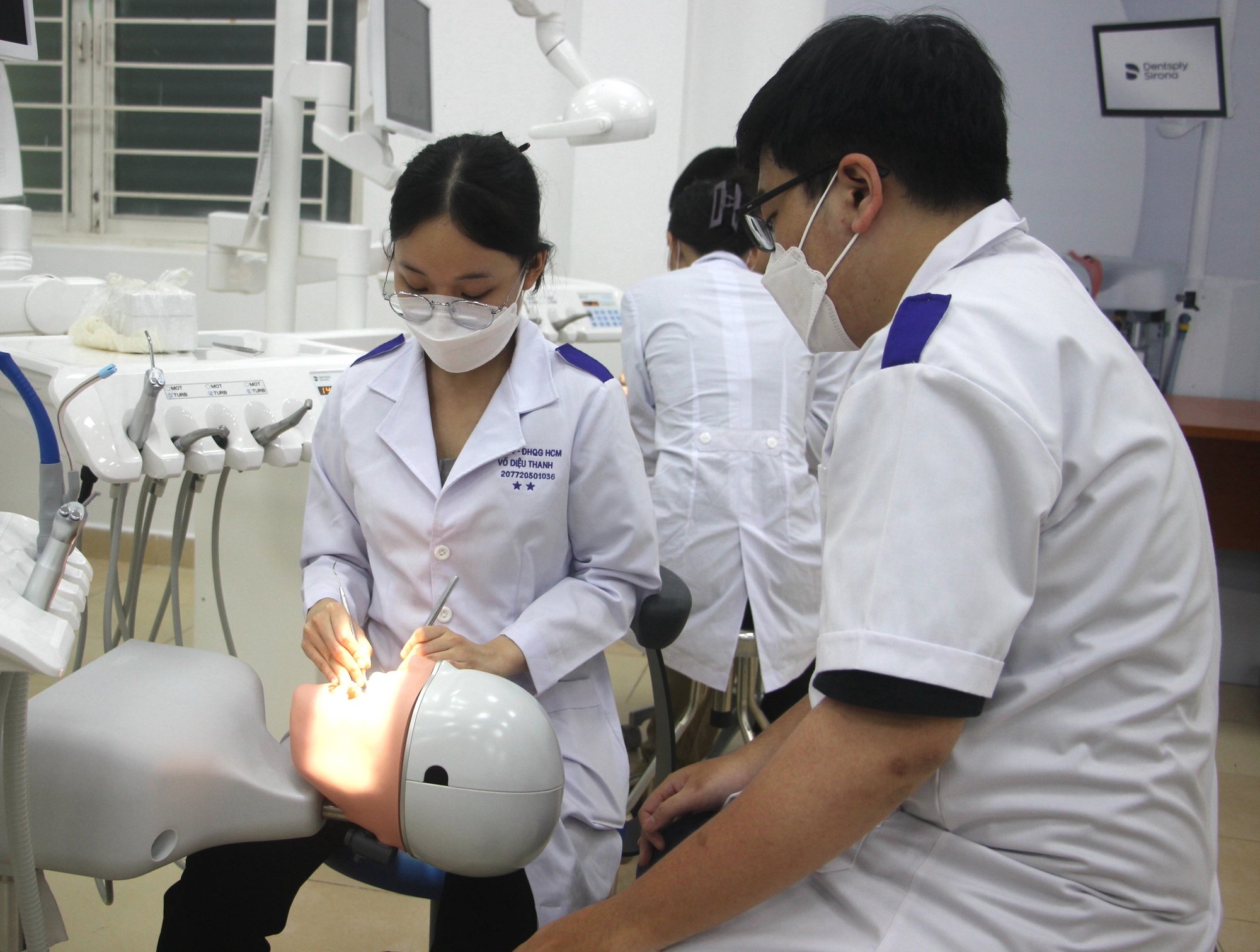
Students of the Faculty of Medicine (Ho Chi Minh City National University) practice in the faculty's practice room.
Medical training faces difficulties in practice
Prof. Dr. Dang Van Phuoc, Dean of the Faculty of Medicine (Ho Chi Minh City National University) said that the Faculty was established in 2009 and is currently training in 5 majors: Medicine, Pharmacy, Dentistry, Traditional Medicine, Nursing. There have been 692 medical students and 150 pharmacy students graduating.
Also at the meeting, Professor Dang Van Phuoc stated that health sciences is a special field. Therefore, medical training must create a solid knowledge base so that doctors can practice, and the higher they go, the more solid they will be.
"If there is a lack of knowledge in the medical field, it is difficult to make up for it. Therefore, the responsibility of teachers and trainers is very important. I am very concerned about the practice issue, the skills of doctors are very problematic. 6th year medical students now are not allowed to touch medical records, do not write medical records... That means their skills are getting worse and worse. Medicine is still a vocational profession, so practical training is extremely important. But we are overloaded with practice issues, too many students while there are no practice facilities", informed Professor, Dr. Dang Van Phuoc.
Professor Le Minh Tri, Deputy Head of the Faculty of Medicine, in charge of pharmacy, also said that currently, training in medicine and pharmacy is facing many difficulties. Especially in finding lecturers and practice facilities. Usually, practice teachers are doctors, while their income from practicing in hospitals is much higher than from teaching, so not many people are interested in teaching practice to students.
In particular, for pharmacy students, there are almost no state-owned pharmaceutical companies, but mainly private companies. It is extremely difficult for pharmacy schools to apply for students to practice.
Prof. Dr. Dang Van Phuoc, Head of Faculty of Medicine (Ho Chi Minh City National University)
"It's very difficult to find a teacher to teach practical training. Even many doctors or acquaintances of mine who work at pharmaceutical companies are earning a salary of 6,000-7,000 USD, so how can we invite them to teach us? We have to use personal connections to find places for students to practice, but there aren't many," said Mr. Tri.
Dr. Nguyen Van Quan, Deputy Director of the Department of Science, Technology and Training of the Ministry of Health, said that Decree 111 (regulations on the organization of practical training in health sector training) clearly stated the number of lecturers/1 hospital bed; the number of students/1 hospital bed. The total time spent teaching practical training of all lecturers at the practice facility must be at least 20% and at most 80% of the total duration of the practice program.
The training law also clearly states that the regular medical industry has less than 15 students/1 lecturer.
The ward has 18 patients but 82 interns!
Agreeing with the above viewpoint, Professor Tran Diep Tuan, Chairman of the University Council of Ho Chi Minh City University of Medicine and Pharmacy, also said that this is a common difficulty for schools training in health sectors.
Training medical human resources requires the synchronization of the whole system and between schools. This requires responsibility and a comprehensive policy. For example, at the University of Medicine and Pharmacy, Ho Chi Minh City, lecturers teaching the medical major have been trained in pedagogical skills according to new methods.
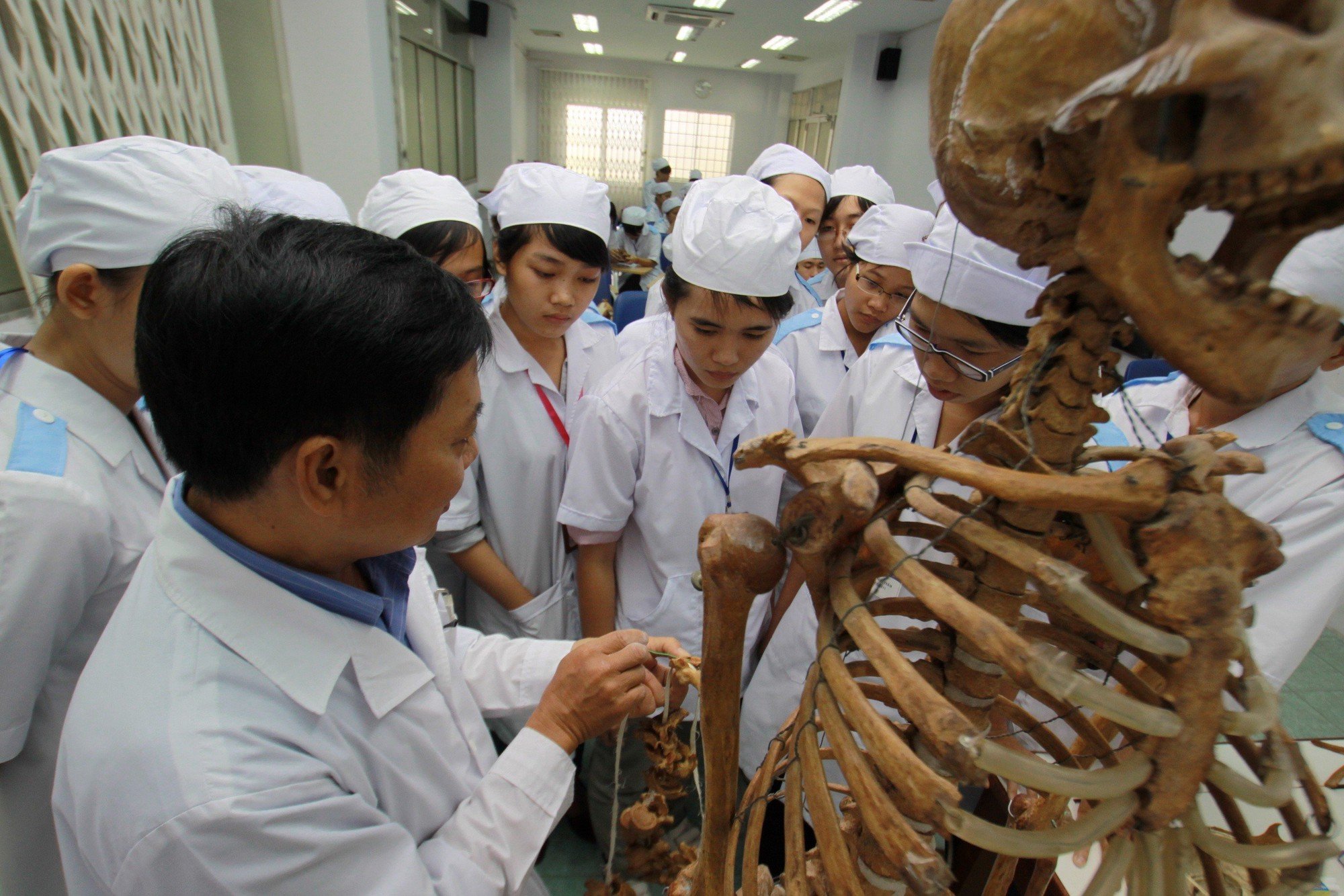
Medical students are having difficulty finding internships.
"Although teachers teach a lot, to teach the right way of the medical profession is a problem. Therefore, we have to train lecturers for the medical profession, this is a unique feature of this profession, other professions do not have.
As for medical school lecturers, there will certainly never be enough, so in addition to the school's regular lecturers, there must be guest lecturers. This is a common difficulty for schools. If the lecturers are doctors at the hospital, the question is how to teach well... Therefore, the more schools open medical training, the more difficult it is for the teaching staff," Mr. Diep Tuan raised the issue.
Mr. Tuan gave a recent example, at a large hospital in Ho Chi Minh City, a ward had 18 patients but 82 interns. So how do lecturers know how to teach?
Mr. Tuan commented that in the medical field, it is difficult for schools to provide good training when the number of interns is too large.
Students should be divided into practice streams at many hospital levels.
According to Mr. Tuan, the immediate solution is that schools that train human resources for the provinces should not let students practice at hospitals in the city but at provincial hospitals. This is done by many countries, this is called internship streaming.
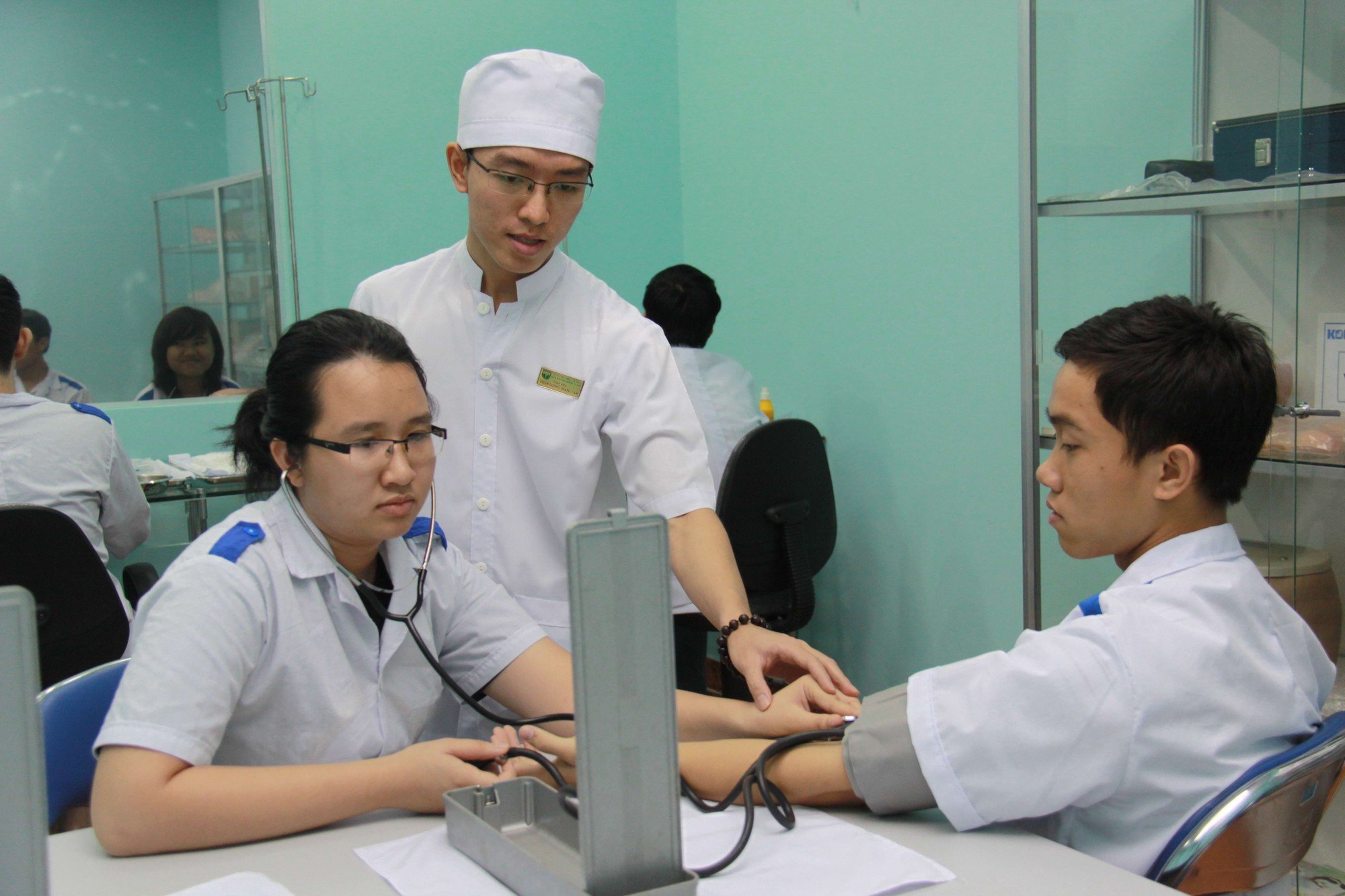
Currently in Ho Chi Minh City, there are many schools training in health sectors, including medicine. The large number of students makes it difficult for them to practice.
Streamlining students right from the practice stage will help them define their future work more clearly, and also reduce the pressure of finding a practice facility.
Currently in Ho Chi Minh City, there are many schools that train in health sectors, including medicine. The large number of students makes it difficult for them to practice. Mr. Tuan suggested that hospitals and schools should allocate hospitals to students. "For example, dividing into clusters of hospitals that coordinate with a certain school, only then can we meet the practice needs of students," Mr. Tuan suggested.
Recommendation for the Faculty of Medicine to establish a hospital
Associate Professor, Dr. Nguyen Thi Lien Huong recommended that the Faculty of Medicine and Ho Chi Minh City National University should establish a hospital so that students have a place to practice. Regarding facilities for students to practice, the Deputy Minister suggested that Ho Chi Minh City National University create conditions to soon establish centers for students to practice clinically. "Currently, students are already facing difficulties in practicing in hospitals, and if there are no clinical practice facilities, they will be at a disadvantage, and it will be difficult for lecturers to convey and ensure training quality," the Deputy Minister of Health emphasized.
Source link




![[Photo] Vietnam shines at Paris International Fair 2025 with cultural and culinary colors](https://vphoto.vietnam.vn/thumb/1200x675/vietnam/resource/IMAGE/2025/5/4/74b16c2a197a42eb97597414009d4eb8)
![[Photo] General Secretary To Lam receives Sri Lankan President Anura Kumara Dissanayaka](https://vphoto.vietnam.vn/thumb/1200x675/vietnam/resource/IMAGE/2025/5/4/75feee4ea0c14825819a8b7ad25518d8)

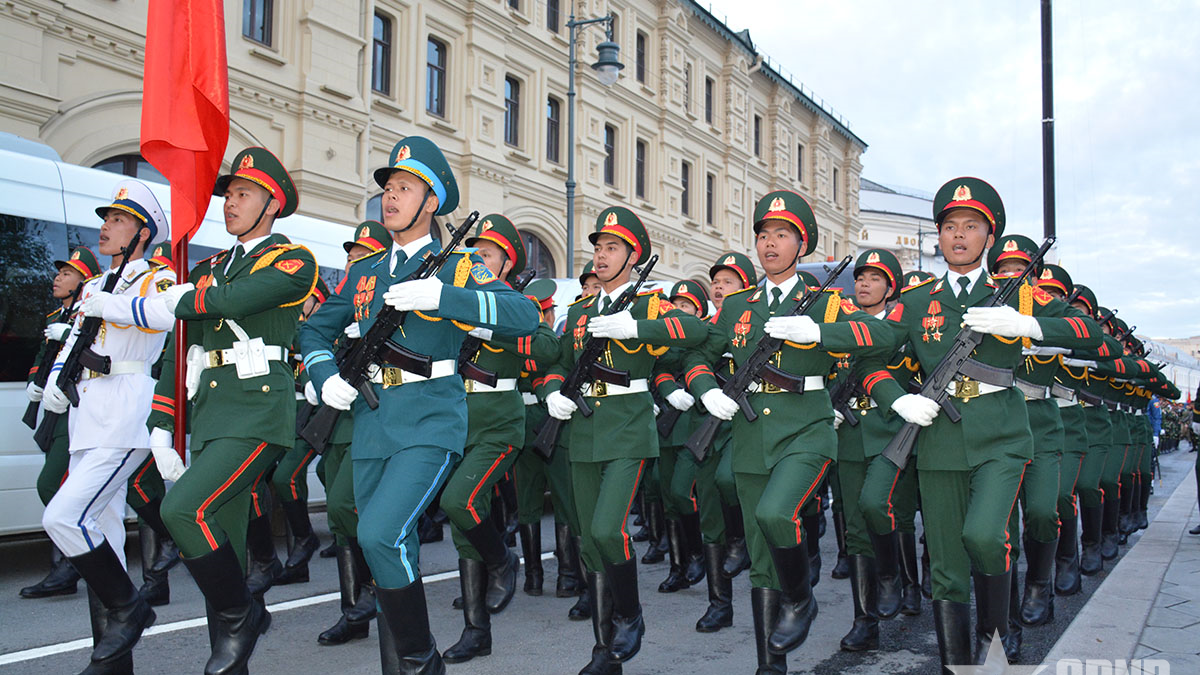



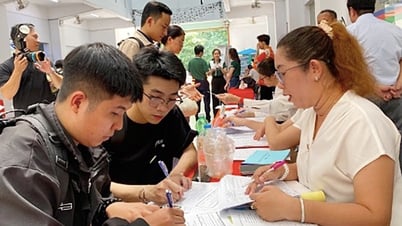


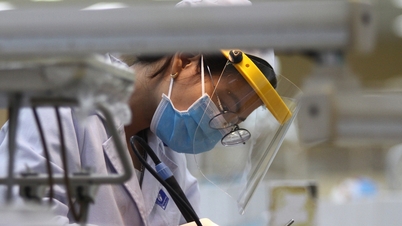




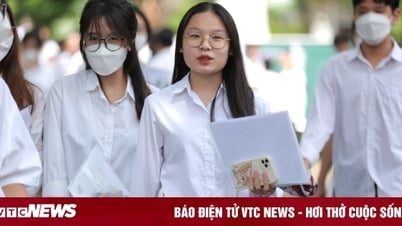





















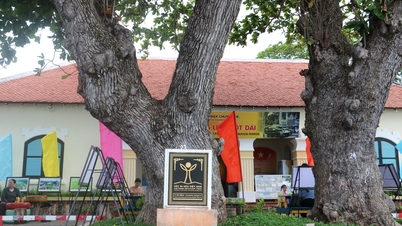





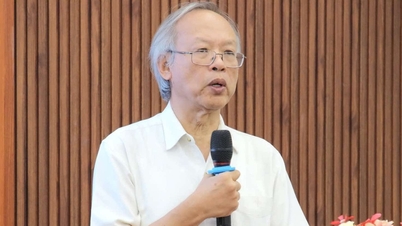

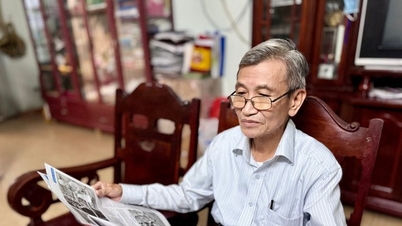
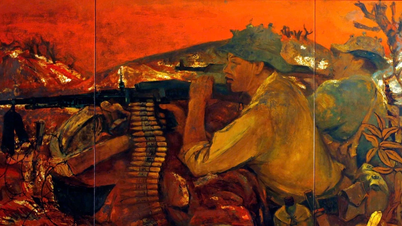







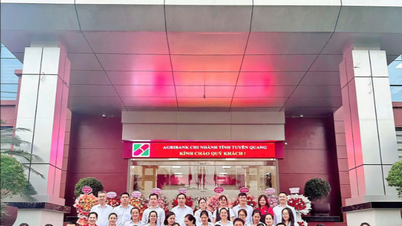







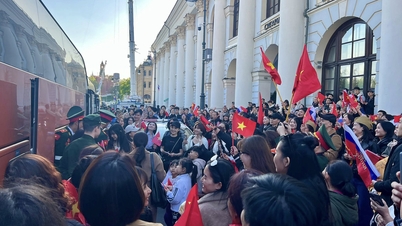


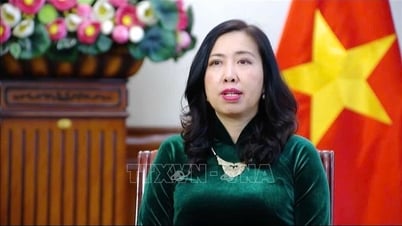















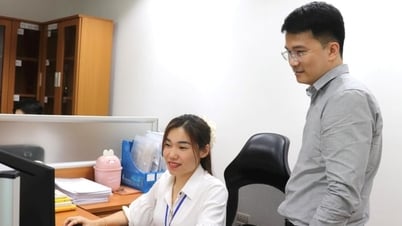










![[Video]. Building OCOP products based on local strengths](https://vphoto.vietnam.vn/thumb/402x226/vietnam/resource/IMAGE/2025/5/3/61677e8b3a364110b271e7b15ed91b3f)




Comment (0)